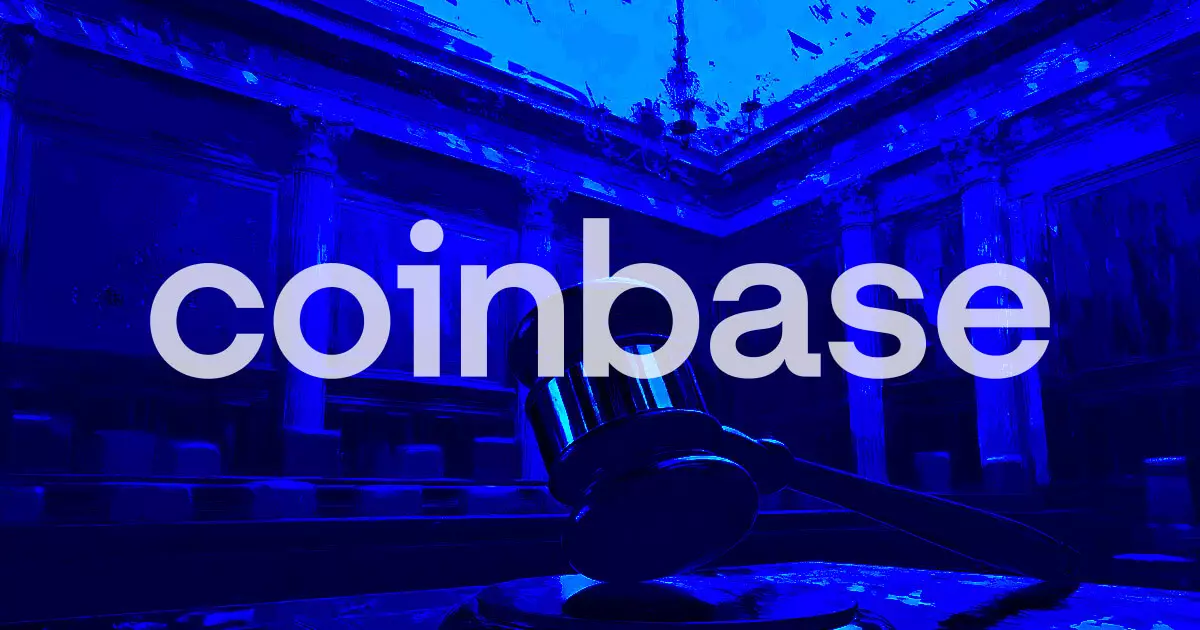Vermont’s recent decision to withdraw its legal case against Coinbase marks a significant shift in the regulatory landscape of cryptocurrency within the United States. Initially, the state accused Coinbase of offering unregistered securities through its staking program, a move that was emblematic of a broader, multi-state legal challenge against the exchange. This undoing comes on the heels of the U.S. Securities and Exchange Commission’s (SEC) strategic pivot towards establishing clearer guidelines for digital assets, a move that some view as a necessary corrective but which leaves others concerned about the broader implications of regulatory overreach.
When Vermont’s Department of Financial Regulation filed the motion to drop the charges, it did so with the rationalization that the SEC’s forthcoming crypto task force would lead to more transparent policies regarding the treatment of digital assets. This seems a prudent decision, yet one can’t help but question the motivations behind such a retraction. Is it truly about clarity, or is Vermont merely tired of battling against an increasingly convoluted legal and bureaucratic tide?
The Implications for Crypto Firms
For Coinbase and other cryptocurrency exchanges, Vermont’s withdrawal could be perceived as a win. Paul Grewal, the Chief Legal Officer for Coinbase, expressed his relief and emphasized that the company’s stance—that staking does not equate to offering securities—has been validated. But while it’s tempting to herald this as a victory for Coinbase, it’s critical to recognize that it’s merely one battle in a larger war concerning regulatory scrutiny of the crypto industry.
The tension between cryptocurrencies and regulatory bodies has amplified into a dual narrative: one in which progressives argue for stricter regulation to protect consumers and the other where more libertarian, center-right commentators stress the need for innovation without the fetters of overly stringent guidelines. It’s vital to understand that this backdrop is complicated; what may seem a triumph for Coinbase today could just as easily transform into an existential threat tomorrow depending on how the SEC and state regulators choose to proceed.
The Future of Staking Services
Staking, lauded by some for its ability to enhance blockchain security, is becoming a contentious issue under the current regulatory schema. Opponents argue that without proper regulation, these services can mask actual investment risks. Coinbase maintains that staking is a cornerstone of blockchain functionality—providing security and decentralization—yet, the fine line between service and securities continues to blur, particularly in the eyes of regulators eager to act in the name of consumer protection.
The notion that staking should be treated as a security under the Howey Test remains hotly contested. While Coinbase stresses that the legal definitions do not hold for staking, one can’t help but feel the echo of regulatory caution lurking in the background. As more states reevaluate their positions, the conversation around digital assets is set to escalate, inevitably drawing in concerns regarding economic sovereignty versus the need for innovation.
The moment Vermont decided to step back, it created a ripple effect, inviting speculation about how other states might follow suit. However, the implications extend beyond state borders; they are reflective of a technology sector grappling with its fundamental identity in a rapidly evolving financial landscape, raising questions that could have far-reaching consequences for both the future of crypto and traditional financial systems.















